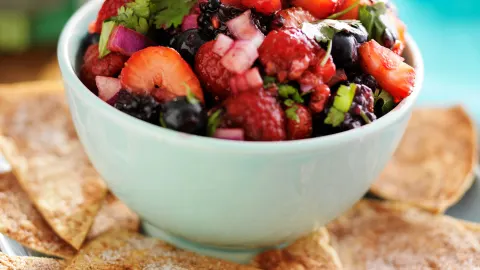Healthy eating
Introduction
The right food provides fuel for all the things you need to do, from caring for your family, to working, playing, and every moment in between.
The foods you eat not only affect your energy levels, but they can also influence how your body functions in general.
Healthy food delivers nutrients to help keep your organs, muscles, and bones working properly. Junk food, meanwhile, can do the opposite.
While you probably have a good idea of which foods your body needs to stay fit and on-the-go, we'll break down the facts about what's healthy and what's not.
Not every food, diet, or recipe is right for everyone, so if you have any questions or need help understanding what you should or shouldn't eat to meet your goals, talk with your healthcare provider (HCP).
They'll give you tips, information, and advice tailored to your specific needs.
Healthy foods

Is red meat really that bad for you? What does it mean to eat a vegan diet? What nutrients do you need above all? Find out answers to these questions and more, plus learn about some of the healthy foods you might consider adding to your diet. Some are smart bites you can add to a meal or a dish, while others you can eat as snacks with little to no prep work.
Healthy recipes
Whether you're looking for quick, healthy breakfasts for busy mornings, healthy snacks that even the kids will eat, dinner ideas to nourish the body and soul, or you just need some inspiration as you experiment in the kitchen, we're here to help. With easy-to-follow recipes and information, you can make meals you feel good about. If you have any questions about foods or diet plans for your unique health and lifestyle concerns, speak with your HCP.
Healthy habits

Developing healthy habits can take time. To help you along the way, we have tips and information on everything from detoxes and diet plans to simple ways to reduce your salt intake. Keep reading for details that you can discuss with your HCP. Soon, you'll find new ways to develop healthy habits.
Special diets
Whether you have diabetes, thyroid issues, or a heart condition, you may need to eat a diet that's specially tailored to your condition. Find interesting ways to incorporate the flavors you love into your recipes and understand how choosing certain foods can affect your body. Be sure to talk with your HCP before making any changes to your diet.





